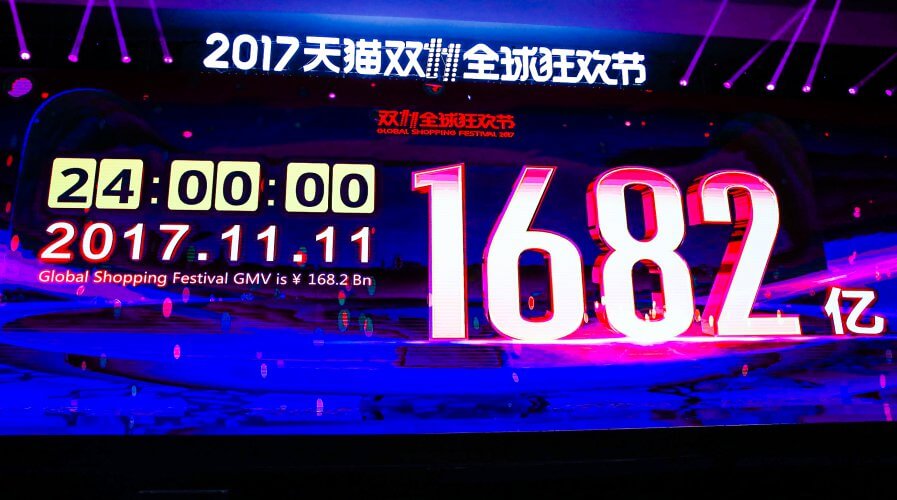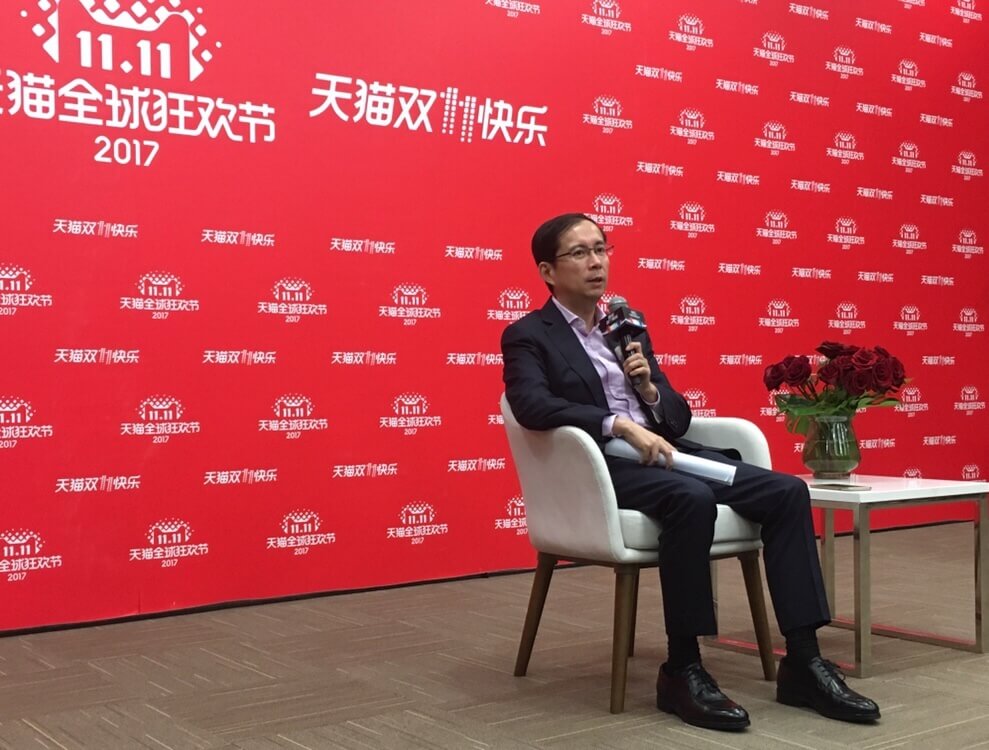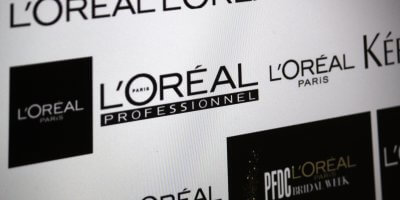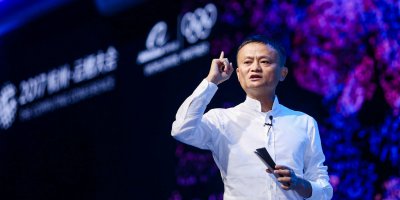
Alibaba’s gross revenue for the sales came in at US$25 billion. Source: Alizila
Alibaba’s 11.11 shopping festival hauls in staggering $25b revenue
ALIBABA’S annual “11.11” (“Double Eleven”) shopping festival shattered all previous records when the company registered a staggering US$25 billion of gross merchandise volume in a single day.
“More than US$25 billion of GMV in one day is not just a sales figure,” Alibaba Group CEO Daniel Zhang said in a statement.
“It represents the aspiration for quality consumption of the Chinese consumer, and it reflects how merchants and consumers alike have now fully embraced the integration of online and offline retail.”
The e-commerce giant’s revenue from the sale saw a 39 percent increase compared to the previous year’s earnings, as evidenced by the strong marketing campaign leading up to this year’s shopping bonanza. According to a statement from the company, Alibaba Cloud processed 325,000 orders per second at peak times, totalling to as many as 812 million orders, as noted by Cainiao Network, Alibaba’s logistics arm.
Single’s Day – as 11.11 is also known as – is China’s celebration of lonely hearts, and has burst onto the global stage as a cultural event. The world’s biggest shopping event dwarf the US’s equivalent, post-Thanksgiving Black Friday sales, which last year picked up as much as US$5.9 billion.

Daniel Zhang, Alibaba Group’s CEO. Source: Alizila
“In terms of scale it just dwarfs any other event out there,” said Ben Cavender, Shanghai-based principal at China Market Research Group, to Reuters.
“This is a big event for China, for the Chinese economy,” Alibaba’s co-founder and vice chairman Joseph Tsai told Reuters.
“On Singles’ Day, shopping is a sport, it’s entertainment.”
He said the growth of the festival was reflected in the explosive increases in the company’s e-commerce activity, fueled by China’s huge consumer base.
11.11 isn’t just about shopping – though that takes central stage – however. Accompanying the festival was an entertainment variety show, streamed across various platforms including Youku, Youtube, the Taobao and Tmall apps, and various state cable networks. The gala event featured not just Alibaba’s celebrity-like executives and famous film stars like Zhang Ziyi and Fan Bingbing, but also international stars ranging from Pharrell, Williams, Maria Sharapova, Nicole Kidman and Jessie J.
However, behind the glitz and the glam are the huge margins the company has had to spend in order to keep its edge against creeping competition from other domestic players such as JD.com, who reportedly US$19.01 billion in revenue.
The close competition is a hallmark of China’s increasingly saturated marketplace, and an environment where every company has to continuously outdo each other and provide an endless list of value-adds in order to snap up as many consumers as possible.
The effect has spilled over into other parts of the world and the retail industry as well – what once started as a China-only event has become a global phenomenon, especially in Southeast Asia where local e-commerce dealers were also offering their own 11.11 deals.
Furthermore, Alibaba has also been touting more of its “New Retail” technologies and “smart store”, each one playing a significant role in the company’s strategy to dominate the market. These include augmented reality make-up counters, smartphone-based games and new online shopping preferences. Alibaba said 100,000 physical stores had been converted into “smart stores” which would be processed through Alibaba’s payment platforms.
READ MORE
- Black Friday sales break records, but not bigger than 11.11’s success
- Success during 11.11 festival showcases Alibaba’s powerhouse computing tech
- E-tailers up their game as Singles’ Day nears
- China’s e-commerce giants employ advanced tech for Double Eleven festival
- China consumer group urges govt to punish firms for ‘fake’ discounts on Singles’ Day






